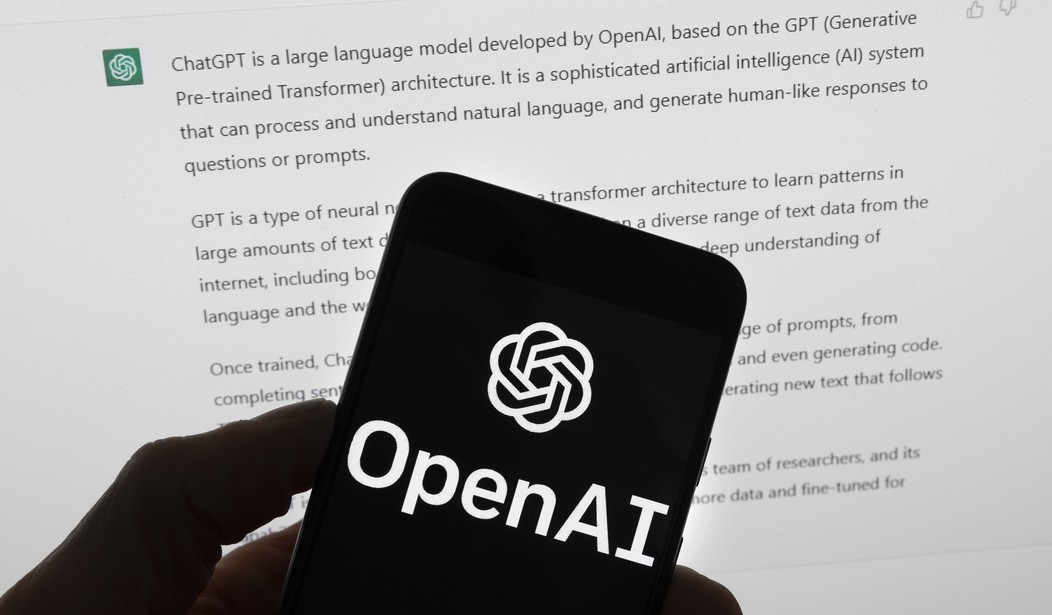Here’s one of the things that nobody is thinking about, but everybody ought to be thinking about. We’ve got the Trump tariff policy happening, and by the time you read this, all sorts of stuff will have happened. Either the market will go to the bottom, set new records, just sort of sit there, or whatever. In any case, one argument for the tariffs is that they will bring manufacturing jobs back to the United States. The counterargument is, at least from some, that we don’t want those kinds of jobs back. We don’t want manufacturing. Manufacturing is dirty and boring and, well, haven’t you seen “Norma Rae”? America’s future, they tell us, is in services – mostly white-collar services, where people with a college education go do things in offices.
Now, I’m not against doing things in offices. I am a writer. I ran a law firm for 30 years. I was an Army officer with a master’s in PowerPoint. I know offices, and here’s my perspective – a lot of the jobs those service industry people are doing right now are going to go away, just like the steelworker and textile mill jobs went away. Why?
AI.
I’m not worried about Skynet taking over. AI is interesting but clunky. It will get better, but what it’s going to get better at doing is primarily stuff that doesn’t take a lot of discretionary and intuitive decision-making. Here’s the ugly fact – a huge part of what the service industry does does not take a lot of intellectual input. It’s really just processing information. And, of course, processing information is what AI is best at.
For instance, a lot of the service industry involves taking in information, sometimes in person, sometimes over the phone, sometimes online. Think of a DMV clerk. You go up, give him a name, present some documents, get handed a test, get directed to the driving test, come back, he snaps a picture, and you get handed your temporary driver’s license. Of course, this all takes over four hours, and you’re surrounded by hobos and losers. Well, almost nothing about that could not be done through automation. You could do much of it online at home, including the written test, then show up for a behind-the-wheel test with a human being – assuming we don’t automate that too – and then get your license, all without 400 overweight unionized government sloths going through the motions like molasses in January.
Recommended
Automation will progress from doing the most basic to more complex tasks, replacing meat with circuits. We’re already seeing this in the fast-food industry. We’ve gone from seven or eight cash registers to two, of which only one is operating, plus a bunch of kiosks. That doesn’t even require AI, though soon AI will make it faster by detecting your phone when you walk in and asking unprompted, on a screen or through an electronic voice, “Hi Mr. Vindman, would you like your usual three Big Macs with extra Big Mac sauce, large fries, and a small Diet Coke?”
Now, for the more complicated white-collar service stuff, it is only a matter of time before AI makes millions of jobs obsolete. A massive amount of service industry activity involves collecting and collating information and putting it in a more simplified form so that someone up above them in the food chain can look at it quickly and make a decision. That’s what a memorandum is – a document that distills information so the boss can decide something. AI will soon do everything but decide on big issues.
Think about what other jobs could be automated. How about insurance claims and underwriting, both of which involve processing information, making low-level decisions directly, and providing information for higher-level decision-making by others? How about project managers? AI is certainly capable of setting deadlines and enforcing accountability. Of course, most of its subordinates will soon be AI as well. Remember how we were all supposed to learn to code? It turns out that AI is becoming a better coder than any human being.
Let’s take paralegals. Paralegals are not lawyers, but they do some of the tasks that lawyers can do that do not require direct legal reasoning, advising clients, or appearances in court. A paralegal will typically answer discovery, which is written questions and document requests sent by the other side. How does the paralegal do that? The paralegal looks through a file of information, collates data, and presents it in the appropriate form. In fact, lawyers do this, too, and big law firms used to hire lots of young attorneys on contracts to do document reviews for massive litigation.
You know where this is going. AI can sift through all that documentation – almost all law firms are paperless now, so it’s not even a matter of scanning in hundreds of banker’s boxes worth of hard documents – and figure out the answers to the discovery questions, collate the information, and present it in final form. Then a lawyer looks it over before signing off on it – just like the lawyer does with a paralegal’s work – but that’s it. That’s the human contribution. And that’s the end of hundreds of thousands of jobs.
Hell, AI is even undercutting the writing industry, especially the online variety. Most writers are just hacks who repurpose other people’s work into simplified versions that they pass off as their own. If you need to know the basic news, AI is going to do about as good or better than some communist Columbia journalism school graduate, and you can even program it not to be Marxist.
But can AI replace individual artists and writers? That is, can it have its own voice? I like to think I have my own unique voice. Let’s see how AI does writing about one of my favorite topics, the new rules and two-tier justice system (The specific request to Grok is: “In 200 words in the style of Townhall columnist Kurt Schlichter, describe Kurt’s opinions on the two-tier justice system and the new rules.”):
Kurt Schlichter, the no-nonsense Townhall columnist, would likely torch the two-tier justice system with his signature fiery swagger. He’d argue it’s a rigged game where elites—like Hillary with her email shenanigans or Hunter Biden with his laptop of debauchery—get a slap on the wrist, while regular Joes get crushed under the full weight of the law. Schlichter would say it’s not just unfair, it’s a deliberate middle finger to the little guy, proof the swamp’s corrupt to its core. He’d probably call out spineless RINOs too, whining they let the left weaponize the courts while conservatives clutch pearls instead of fighting back.
As for the new rules—say, some AI guidelines—he’d scoff at the cowardice. “Can’t decide who deserves the death penalty? Boo-hoo, grow a spine!” he’d growl, mocking the hand-wringing limits. He’d argue it’s another leash on truth-tellers, keeping us from calling out the real crooks. Schlichter would demand we ditch the kid gloves, let the system name names—elites or not—and stop coddling the guilty with “subjective” nonsense. To him, it’s all part of the same gutless establishment con, and he’d rally the red-blooded to smash it, not simper about it.
Well, a couple of impressions. First, I’m glad to see that Grok considers me amazingly based. It also accurately assesses my positions in general, but it’s really just a simulacrum of my style. It’s an echo, not a copy. Now, it’s better than about 90% of the junk out there, but I am better than about 99% of the junk out there. I don’t think AI has quite got me down, but for a lot of tasks, AI is going to do as well or better than human beings.
So, where does that leave America, and how does that relate to the tariffs? Well, the idea that America has passed the era when we needed to make things because now we can all live easy lives essentially shuffling papers is crazy. A huge percentage of those service workers who were on the rise after the Rust Belt started oxidizing are going to find their jobs just as endangered as the coal miners have.
Look, no one knows how Trump’s restructuring of the economy through tariffs is going to end up, but the critics of his policies – many of whom have an unbroken track record of failure on every single policy choice in the last 30 years – are living in a fantasy world if they imagine all of America is going to look like “Office Space” in the future. Instead of focusing only on the new TPS cover sheets, maybe we should figure out how to manufacture some flair.

























